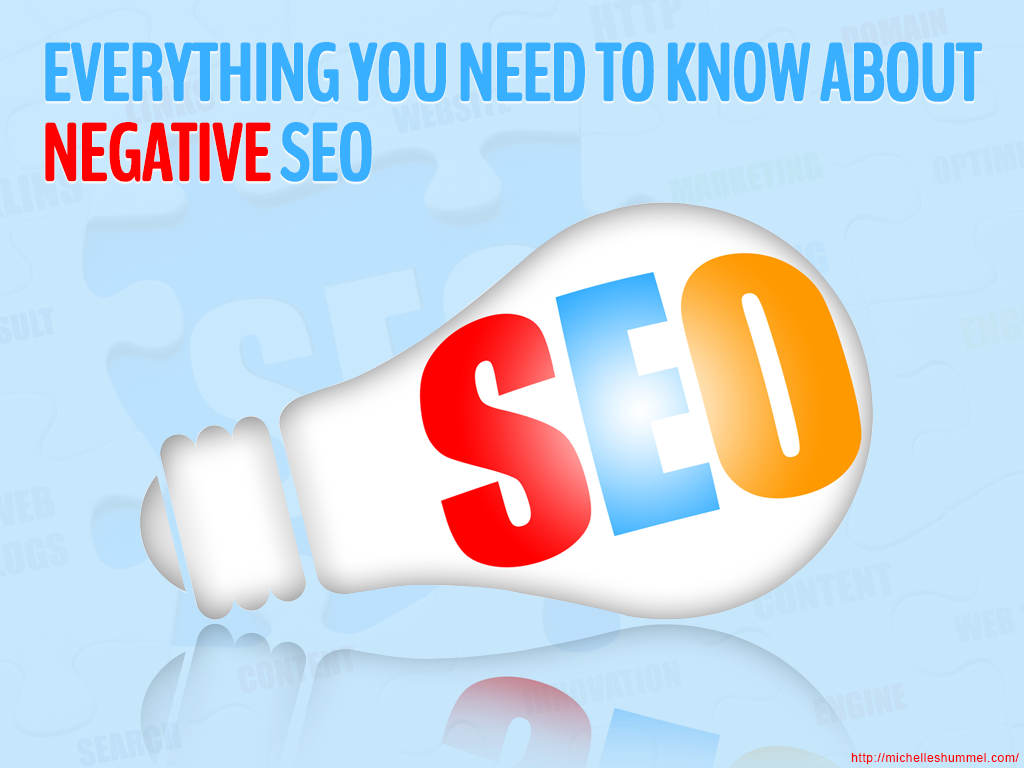Everything You Need to Know About Negative SEO by Michelle Hummel

Although negative SEO is something that’s been around for quite awhile, it’s recently received more attention than ever before. Whether you’re concerned about your business being impacted by this practice or you’re simply curious to learn more about this topic, keep reading to find out everything you need to know about negative SEO:
What the Term Negative SEO Means
This phrase is used to describe blackhat SEO strategies that are specifically used on another website in order to sabotage its rankings. Negative SEO may also be used to refer to tactics that an individual or business uses in order to harm the reputation of a competitor.
Google’s View of Negative SEO
According to multiple statements from Google representatives like Matt Cutts, “ small businesses shouldn’t worry about being targeted for negative SEO because it’s a tactic that is only being reported on in very niche markets of bigger, highly-competitive businesses.” The reason Google has that stance is according to their data, this topic is frequently discussed but not actually executed very often. That being said, it is something that any business can do or hire someone else to do to a competitor. And for larger businesses that do operate in competitive industries, the threat of negative SEO by scammers attempting to rank for their own profitability is a concern.
Even though Google says that negative SEO is a fairly rare problem, they did add a feature to their Webmaster Tools platform that makes it possible to disavow “bad” links. Since a common negative SEO tactic is to point 1000s of spammy links at a site in order to hurt its rankings, the disavow tool gives website owners the ability to tell Google that they weren’t responsible for creating those links.
How to Deal with Negative SEO
While Google promotes using their disavow tool, that generally isn’t where you want to start with this issue. If you believe that negative SEO is hurting the rankings of your business website, a better option is to first consult with an experienced SEO expert who can analyze your rankings. This will ensure that the problem is actually the result of negative SEO and not something else like a Google algorithm change.
If negative SEO is confirmed as the root of the problem, a knowledgeable consultant will be able to guide you through the process of either disavowing bad links or taking another approach to fix any damage and restore your site’s rankings in Google.
If you’re interested in securing SEO consulting or training for your business from an experienced professional, contact me today so we can talk about how I can help your business with SEO and online marketing.
